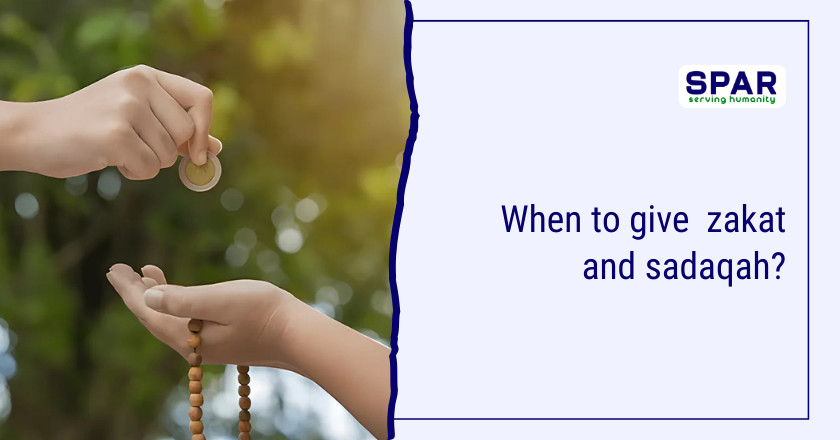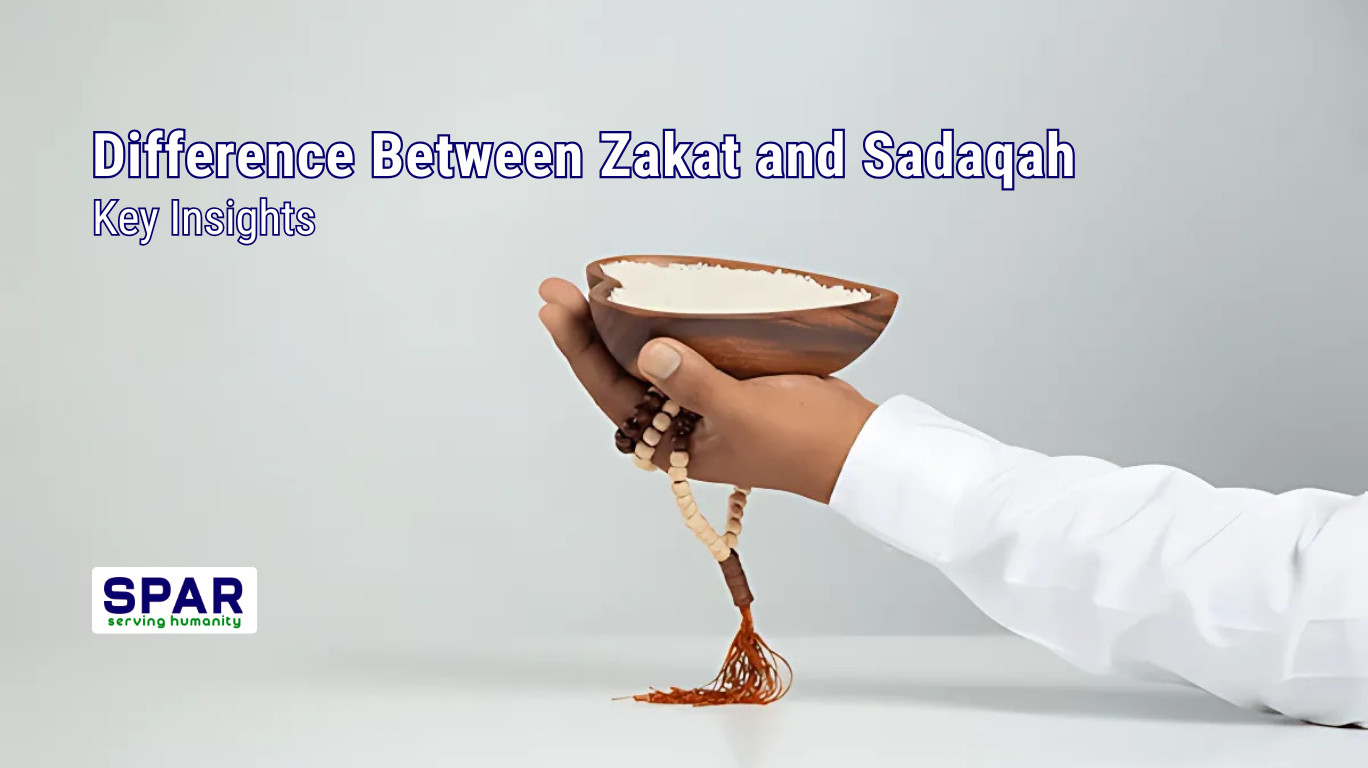Difference Between Zakat and Sadaqah: Key Insights
Charity is embedded in daily life in Islam. Zakat and Sadaqah are both forms of charity that aim to help those who are in need; however, it do vary between them. Shatters are mandatory, while Sadaqah is optional. Knowing the difference between zakat and sadaqah allows you to meet your religious obligations and contribute meaningfully to your community. In this article, we’ll explain the differences among the types, who is eligible to give them, and their spiritual benefits.
What is Zakat?
It is one of the Five Pillars of Islam, zakat. They are made to pay once a year if they reach a certain condition to be obliged to pay. Zakat is meant to purify your wealth and alleviate poverty. If total wealth exceeds a certain limit, which is known as Nisab, Muslims are to give away 2.5 percent of their savings, investments, and assets in charity. It is a must for the poor, orphans, those in debt, etc.
What is Sadaqah?
Sadaqah, however, is the voluntary charity. It can be any amount and can be given at a different time. Sadaqah can come in the form of money, food, time, and even a small, simple act of kindness such as a smile or other assistance. In contrast to Zakat, there are no defined regulations regarding who is obligated to give Sadaqah. In other words, anyone can give it, regardless of their wealth. It’s designed to promote generosity and build community.
Differences between Zakat and Sadaqah
Obligation vs. Voluntary
- Zakat: Required of Muslims at the wealth threshold.
- Sadaqah: Voluntary; anyone can give, anytime, in any amount.
Fixed and Flexible Amount Contributions
- Zakat: 2.5% on eligible wealth
- Sadaqah: No fixed sum; can be given in any amount
Purpose
- Zakat: It purifies the wealth and aids the poor.
- Sadaqah: Aims for Allah’s pleasure, fosters community, and assists the vulnerable.
Eligibility
Zakat: Only given to particular categories of people, such as the needy, the orphans or the debtors.
There are no restrictions on who can receive Sadaqah; it can be given to anyone in need.
Who is Required to Pay Zakat?
Zakat is obligatory on a Muslim with wealth that is beyond the Nisab. This is the least wealth that a person must have to pay Zakat. The Nisab is calculated using the current values of 85g of gold or 595g of silver. If you possess wealth above this amount and it has remained in your possession for a complete lunar year, you are required to pay Zakat. But unlike Zakat, Sadaqah has no limit on wealth, so anyone could do it.
Different Forms of Sadaqah
Sadaqah doesn’t only mean giving money. It can be anything that assists other people. Examples of Sadaqah that are frequently received:
- Money: Cash or goods donations.
- Sadaqah Jariyah: Continuous charity such as building a well or establishing a school
- Acts of Service: Doing chores or helping others.
- Sadaqah Fitrah: Special charity given at the conclusion of the fasting month (Ramadhan) to provide the needy with food to celebrate Eid.

When to give zakat and sadaqah?
Zakat is given once a year and must be paid after the completion of one full lunar year after your wealth crossed the Nisab. It is determined by your wealth at that point in time.
Though you can give Sadaqah at any time. You can present it whenever you want, and you do not need to wait for a particular time or event. You can either do Sadaqah as a spontaneous act of kindness or as a regular donation.
We have big temples and small temples, high and low hierarchies in management.
There are several spiritual virtues of both Zakat and Sadaqah:
Zakat cleanses your wealth and fills your life with blessings. YOU become less selfish and greedy, compromising your selfishness with others by socializing.
Also, Sadaqah doubles your good deeds and helps you to get closer to Allah. Even venial acts of charity can unlock immense rewards.
Both are thanking God and being a good citizen.
What is a Zakat and Sadaqah Online Charity?
- Zakat: It can only be given to certain groups mentioned in the Quran, such as the poor, orphans, and those in debt.
- Sadaqah: It can be offered to anyone who requires it, no matter if he’s a Muslim or not. There are no restrictions.
Are you allowed to give Zakat and Sadaqah together?
Is it allowed to pay Zakat and Sadaqah simultaneously? Zakat is a religious duty, whereas Sadaqah is a voluntary act of benevolence. Many Muslims opt to donate both to maximize their rewards and assist the greatest number of people possible.
How Zakat and Sadaqah affect the community
Zakat and Sadaqah are important tools for fostering a sense of community and strengthening social ties. Zakat promotes fair distribution of resources, as Sadaqah inspires spontaneous giving. Combined, they reduce poverty, improve conditions, and will build kindness. Both types of charity work promote solidarity and a more compassionate society.
Final Thoughts: Difference between zakat and sadaqah
Why should you know the differences between Zakat and Sadaqah? Zakat is a compulsory duty purifying your wealth, but Sadaqah is your act that will draw you closer to Allah. Both kinds of charity buttress the community, lessen inequality and increase your spiritual rewards. By performing both, you are helping the needy and meeting your obligations as a Muslim.
Am I supposed to pay Zakat and Sadaqah?
No, Zakat is compulsory if you pass the financial threshold, but Sadaqah is performance-oriented.
Is it permissible to give Zakat to my family members?
No, you cannot give Zakat to your direct use, which includes children or parents; you are already responsible for it. But you can donate them Sadaqah.
How do I calculate Zakat?
According to Islamic teachings, Zakat is to be given 2.5% of your wealth after a full lunar year when it exceeds a certain limit called Nisab.
When should you give Sadaqah?
Sadaqah can be given at any time. There isn’t a specific time, but it’s always good to give during Ramadan or in times of hardship.
Is it permissible to give Zakat to an organization?
Yes, you can give your Zakat to a charity or an organization, which allocates Zakat to the needy,, but the organizations have to make sure that they give it to the right people.
Can I pay Zakat on behalf of anyone?
Yes, you can give Zakat on behalf of another person, as long as you calculate it properly.




 Secure
donation
Secure
donation